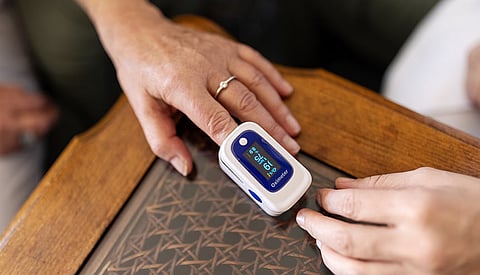

The UK government has launched a “far-reaching review” into the impact of potential bias in the design and use of medical devices, such as oximeters used to measure oxygen levels for Covid-19, to see if it disadvantages particular ethnic groups.
The review follows concerns that the way medical devices and technologies are designed and used could mean a patient’s diagnosis and treatment is affected by their gender or ethnic background. For instance, it is feared that oxygen levels among those with darker skin tones may be overestimated by oximeters, leading to more adverse Covid-19 impact among Britain’s ethnic minorities.
“The coronavirus (Covid-19) pandemic has exposed health disparities across the country as the virus had a greater impact on those whose underlying health was poorer and death rates have been higher among people from ethnic minority communities,” said the Department of Health and Social Care (DHSC).
MORE LIKE THIS…
“The independent review will look at devices such as oximeters – used to measure oxygen levels – to identify potential discrepancies in how they work for different ethnic groups. As part of this, the review will consider whether existing regulations mean there is a systemic bias inherent in medical devices,” it notes.
The DHSC admitted that some research has concluded darker skinned patients who might need to be hospitalised are at greater risk of inaccurate results from oximeters due to a tendency for this group to present higher levels of oxygen in their blood.
Existing research on this has highlighted the need for this issue to be further examined, as these devices are critical for monitoring and deciding if treatment is needed for diseases such as Covid-19, where every minute counts and accurate data is vital.
All devices will be covered by the review. Another specific example includes MRI scanners, which are today still not recommended for use for pregnant or breastfeeding women, and further research is needed on how to expand the scope of the equipment’s use, the DHSC said, adding that the review is intended to accelerate the process of improving the quality and availability of devices to diverse communities.
MORE LIKE THIS…
The review will examine medical devices currently on the market to identify areas of concerns in these products, and aims to:
take forward work on identifying where systematic bias and risk exist with existing approved devices
make recommendations on how these issues should be tackled in the creation of a medical device from design to use, including potentially via regulation
and be future-focused and consider the enhanced risk of bias in the emerging range of algorithmic based data / artificial intelligence tools.
Details of who will be leading the review will be set out in due course and it is hoped initial findings can be completed and presented by the end of January 2022.